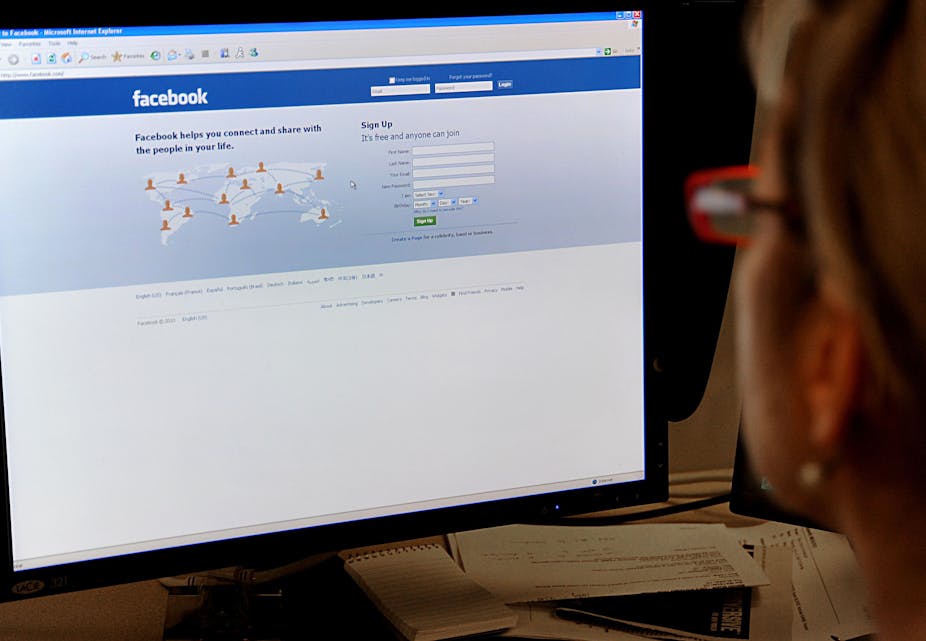Unless you’ve been chained to a fax machine for the past seven years, you’ll have noticed that Facebook is immensely popular.
Users numbered 641 million by February of this year.
Making and maintaining contact with “friends” is the main attraction of Facebook and, like the majority of people, you probably upload personal photos; you probably also play games via third-party applications, advertise upcoming events and join niche online groups.
Though Facebook and other such sites are most commonly associated with the achingly hip, those with aching hips are catching up: the fastest growth in Facebook users in recent times has been in the 74+ age group.
Privacy
Facebook regularly comes under attack for not taking adequate steps to protect our privacy.
But of equal threat is the fact we tend to disclose too much about ourselves; indeed, to make social networking work in the way we would want it to, this is difficult to avoid.
Do we trust too much? In a forthcoming publication, Deakin University researchers Shona Leitch and Matthew Warren claim the threat of identify theft and other unethical behaviour is particularly high on Facebook because we tend to trust our “friends” to safeguard our personal information.
In Australia, a jail term of up to ten years has been established for individuals who use networking sites to steal other users’ identities.
Younger Facebook users tend to adopt “friends” that are not known to them. This has made it easier for criminals to utilise personal information for financial gain.
There have been have been a number of reported security and privacy breaches involving social networking sites. These include a United States lawyer who discovered someone had stolen her identity on Facebook.
Protection
There are a range of security settings and options available on Facebook, although not everyone seems to have noticed.
One recent study found that 60% of adult social network users restrict access to their profiles so that they’re only accessible to their immediate friends. Some 36% still allow anyone to see their online profile.
Another concern is that Facebook enables a large number of third-party applications for entertainment, education and social purposes but does not control them.
Consequently, Facebook advises you to read through each third party’s privacy and security policies. It’s not necessarily the most exciting way to spend your time, but this should probably be done.
If you don’t know already, you need to be aware that many social networking sites share personal identity information with third parties that track and aggregate people’s viewing habits across several websites for targeted advertising purposes.
Some easy steps
If in doubt, it’s probably advisable to avoid using third party applications altogether. How much do you really need that extra game, that funny quiz?
Though not necessarily the most riveting prospect, users should familiarise themselves with Facebook’s privacy policy so that they know what information will be made public or private.
If you do this you will discover, among other things, that:
1) Facebook uses information you’ve added to your profile to direct relevant advertising to your page.
2) Facebook can retain your personal information in perpetuity even if you decide to delete your account.
It might seem obvious, but check your privacy settings. Choose carefully what information to share and, more importantly, with whom. And don’t just do this once, but regularly.
Think about the consequences. Your best friend might love that picture of you falling out of a taxi drunk, fake boobs strapped to your head, but would your boss be impressed?
Likewise, be wary of “stamping” your location. If your home address is widely available on your profile page, and you are clearly overseas on holiday, it doesn’t take a rocket scientist to see the potential risks involved.
Facebook can be a friend, of course, and a good one, provided you don’t take it, or your privacy, for granted.
Marian Quigley is the editor of a forthcoming book entitled ICT Ethics And Security in the 21st Century: New Developments and Applications (IGI Global).

